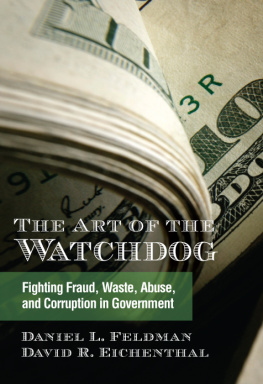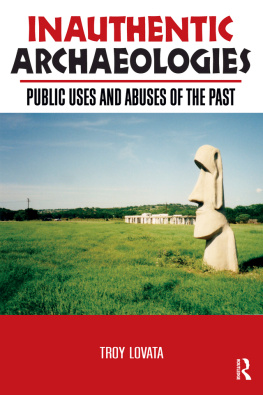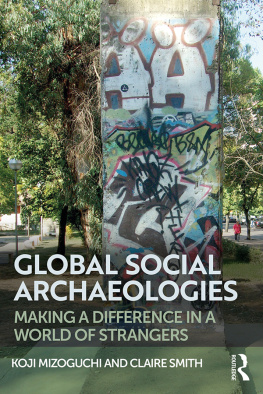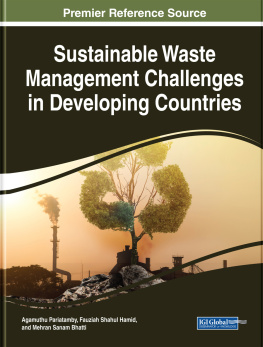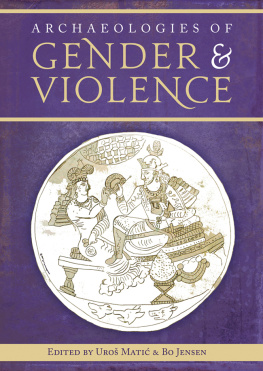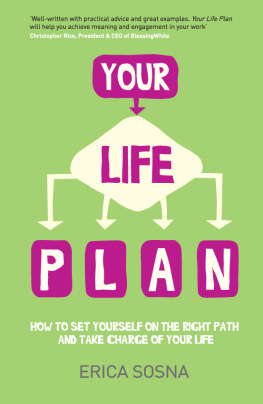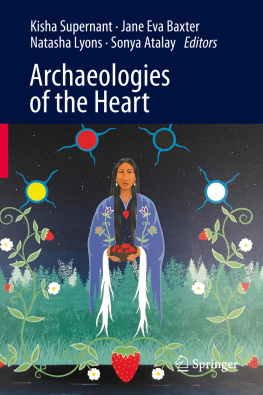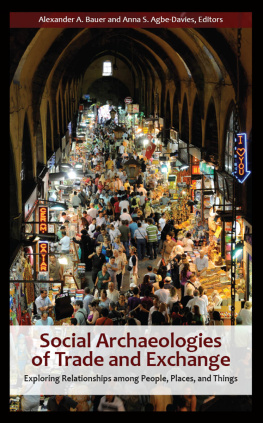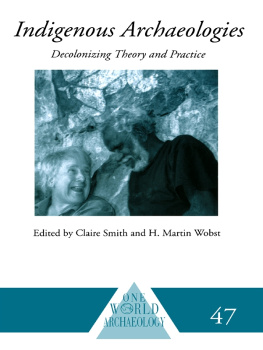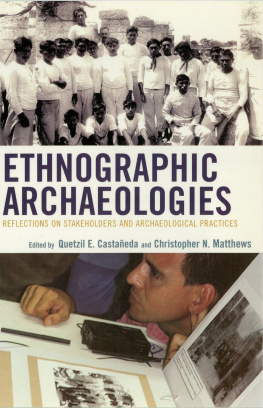Contents
Guide
Pagebreaks of the print version

Published in the United Kingdom in 2017 by
OXBOW BOOKS
The Old Music Hall, 106108 Cowley Road, Oxford OX4 1JE
and in the United States by
OXBOW BOOKS
1950 Lawrence Road, Havertown, PA 19083
Oxbow Books and the individual contributors 2017
Paperback edition: ISBN 978-1-78570-327-0
Digital Edition: ISBN 978-1-78570-328-7 (epub)
Digital Edition: ISBN 978-1-78570-329-4 (kindle)
Digital Edition: ISBN 978-1-78570-330-0 (pdf)
A CIP record for this book is available from the British Library
Library of Congress Cataloging-in-Publication Data
Names: Sosna, Daniel, editor of compilation. | Brunclkov, Lenka, editor of compilation.
Title: Archaeologies of waste: encounters with the unwanted / edited by Daniel Sosna and Lenka Brunclkov.
Description: Oxford; Philadelphia: Oxbow Books, 2016. | Includes bibliographical references.
Identifiers: LCCN 2016040520 (print) | LCCN 2016041168 (ebook) | ISBN 9781785703270 (paperback) | ISBN 9781785703287 (digital) | ISBN 9781785703287 (epub) | ISBN 9781785703294 (mobi) | ISBN 9781785703300 (pdf)
Subjects: LCSH: Social archaeology. | Household archaeology. | Refuse and refuse disposal--Social aspects--History. | Waste products--Social aspects--History. | Material culture--History. | Excavations (Archaeology) | Social values--History. | Differentiation (Sociology)--History. | Spatial behavior--History.
Classification: LCC CC72.4.A7343 2016 (print) | LCC CC72.4 (ebook) | DDC 930.1--dc23
LC record available at https://lccn.loc.gov/2016040520
All rights reserved. No part of this book may be reproduced or transmitted in any form or by any means, electronic or mechanical including photocopying, recording or by any information storage and retrieval system, without permission from the publisher in writing.
Printed in the United Kingdom by Hobbs the Printers Ltd
For a complete list of Oxbow titles, please contact:
UNITED KINGDOM
Oxbow Books
Telephone (01865) 241249, Fax (01865) 794449
Email:
www.oxbowbooks.com | UNITED STATES OF AMERICA
Oxbow Books
Telephone (800) 791-9354, Fax (610) 853-9146
Email:
www.casemateacademic.com/oxbow |
Oxbow Books is part of the Casemate Group
Front cover: Photograph by Daniel Sosna
Contents
Daniel Sosna and Lenka Brunclkov
Joshua Reno
Laura Dietrich
Roos van Oosten
Anders Hgberg
Ed Lyne and Camilla Haarby Hansen
Arvi Haak
Lenka Brunclkov
Sabine Wolfram
Petr Kvtina and Jaroslav dk
Clodhna N Lionin
Daniel Sosna
Claudia Theune
List of Illustrations
List of Tables
List of Contributors
LENKA BRUNCLKOV
University of West Bohemia, Czech Republic
LAURA DIETRICH
Deutsches Archologisches Institut, Germany
ARVI HAAK
Tallinn University, Estonia
CAMILLA HAARBY HANSEN
Museum of Copenhagen, Denmark
ANDERS HGBERG
Linnaeus University, Sweden
PETR KVTINA
Academy of Sciences, Czech Republic
ED LYNE
Museum of Copenhagen, Denmark
CLODHNA N LIONIN
University College Dublin, Ireland
ROOS VAN OOSTEN
Leiden University, Netherlands
JAROSLAV DK
Academy of Sciences, Czech Republic
JOSHUA RENO
Binghamton University, USA
DANIEL SOSNA
University of West Bohemia, Czech Republic
CLAUDIA THEUNE
University of Vienna, Austria
SABINE WOLFRAM
State Museum of Archaeology Chemnitz, Germany
Preface
This book came about in response to recent developments of research on waste in the social sciences and humanities. We felt that the theoretical interest in waste was asymmetrical. After the period of intensive empirical research and theoretical development during the 1970s and 1980s waste has received less attention in archaeology than it would have deserved. This process resulted in the paradox that social geographers, anthropologists, historians and philosophers took the initiative in identifying new theoretical directions and pushed the boundaries of emerging knowledge. While some archaeologists have been moving away from artefacts or things to texts, social geographers and anthropologists have been moving in the opposite direction, discovering the value of materiality including waste to widen their research agendas. Our aim was to promote the flow of ideas among the disciplines and take advantage of their respective strengths.
The original impetus for publishing a book about waste emerged during the debates among the scholars who met at the session entitled Garbage and (Non)-Humans held at the 19th Annual Meeting of the European Association of Archaeologists in September 2013 in Pilsen. Other participants were asked to contribute because of their expert knowledge. Although the pace of our collective effort to publish a book was slow, it also had a positive effect. We could engage in discussions with various scholars during archaeological and anthropological conferences in Europe and the US and explore a wider range of publications. At the same time we continued our field research. All this enabled us to rethink our original theoretical positions and let the new knowledge to set.
We hope that the collective wisdom collated in this book will contribute to thinking about waste as a category which embodies various paradoxes. Waste is ubiquitous but rarely acknowledged, it seems valueless but it carries potential for transforming value, the concept of waste seems straightforward but it is difficult to define its content, waste is potentially rich in information but it raises ethical concerns because of this richness. All these dimensions suggest that waste studies deal with a highly stimulating domain which offers intellectual space for rethinking relationships among things, humans, other organisms and places.
Many people encouraged us and shared their expertise during the work on this book. David Henigs comments on our texts and general editorial process were helpful. Jrn Schusters excellent proofreading forced us not only to rephrase our sentences and correct various errors but also rethink some of our ideas. We are grateful to anonymous reviewers, who provided feedback to the manuscripts. We extend special thanks to Julie Gardiner who trusted that Eastern Europeans could put together such an edited volume and was patient when our progress was slowing down. The work on this book would not have been possible without the support from the Czech Science Foundation (GA14-03314S).
Daniel Sosna
Lenka Brunclkov
February 2016
Chapter 1
Introduction
Daniel Sosna and Lenka Brunclkov
The history of archaeology is closely associated with the study of things that were left behind and, therefore, could become a source of information about societies in the past. Straightforward understanding of the things that became unwanted and were refused incorporated into the dominant concept of refuse has led to the perception that this is an obvious and proven category of things established by decades of research. A closer look into the world of waste, however, indicates that it is too complex and unruly to be captured by a single perspective. Recent development of research in social geography, sociocultural anthropology, sociology, history and philosophy opened new dimensions of thinking about waste. What is waste really, and what are the most productive ways to approach it within and across the disciplines? Is it a social category constructed flexibly within various regimes of value or a specific physical entity? What is the potential of waste to inform us about the entanglements among humans, other beings, things and places? Similar questions open space for rethinking waste while taking seriously recent thoughts generated not only in archaeology but also in other disciplines.



